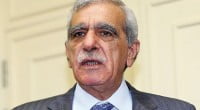Losing rationality in politics and the economy

Date posted: January 27, 2014
GÖKHAN BACIK
Turkey has a weak record of institutionalization. Despite the “We are a big state” narrative, today, Turkey’s political model is simple: the leader and the nation. Lacking effective institutions that can accommodate political fluctuations, crises of various calibers can harm Turkey’s stability easily.
These days, Turkey is again in a period of tense crises. The current crisis is unique in one sense: There are strong signals of rationality being lost. We are lucky that many foreigners cannot speak Turkish. Otherwise, they would be shocked by the verbal signals of this political irrationality. The dictionary of Turkish politics is now full of “traitor,” “terrorist,” “blood sucker,” “assassin,” etc. Even a reminder of the EU’s Copenhagen criteria is an unwanted issue. It is rare to observe a government employing marginal and dangerous political jargon in domestic politics. But this is happening now.
There is a clear problem. It is legal and normal to criticize a government in any democracy. However, in Turkey, any criticism is declared treason or collaboration with the enemy, or part of a coup plot against the government. A leading businessman recently said that foreign companies might stop investing in Turkey if the crisis continues. Immediately, he was declared a traitor. I watched him defend himself on a Turkish news program. This is sad.
The bizarre fact is the silence of the economy-linked bureaucrats, advisors and ministers. There are serious reports that some companies, including banks, are systematically targeted with state instruments. That is, some in-state mechanism is trying to wreck them in order to punish some social groups, like the Hizmet movement. Constitutionally, economy ministers and bureaucrats are responsible for protecting investors’ interests. So far, they have remained silent. Using official instruments to try and destroy a national company is itself clear evidence of irrationality in politics. I cannot remember a similar case in the whole history of democratic nations. It is as clear as this: If a state tries to wreck a national bank, that is perfect proof that people who have no idea of global and economic realities are influential in the making of major decisions.
Let me be clear on this: Some politicians in Turkey are employing a very dangerous narrative. They could even be criticized as committing a hate crime. But this is Turkish politics. Alas, it happens. The more interesting fact is different: How is it that other politicians who are known as balanced and open-minded are keeping quiet? How come the office of the minister for the economy fails to defend a leading businessman who was declared a traitor? Economics is a rational game. A government can evaluate businessmen according to the relevant taxation laws and on other legal criteria. However, it is not a duty of the government to evaluate whether a businessman is a patriot or a traitor. But more dramatic is the silence of those “constitutionally responsible ministers” who are normally expected to defend market actors.
Timing is half of politics. If you fail to act at the correct time, you can easily ruin your political career and potential. Some “brilliant ministers” in the Turkish government who have proven their international stature in various fields, like the economy, can ruin their entire career if they botch the timing of an action these days. There are dozens of state institutions in Turkey that are without public trust because they failed in the past to act when they should have.
Our last optimistic scenario about the bureaucrats and ministers of the economy could be as follows: They are clever guys. They know everything. But they cannot act directly. If they do, they could be dismissed. Worse, unqualified names could replace them. In times of crisis, Turkish politics turns into a factory of unqualified but loyalist names. Thus, perhaps economy ministers and bureaucrats are trying their best behind the scenes. That is why they must be silent on many issues. Their silence may not mean that they are doing nothing. If this is indeed so, we have no alternative but to congratulate them.
Source: Todays Zaman , January 26, 2014
Tags: Democracy | Hizmet (Gulen) movement | Turkey |
























